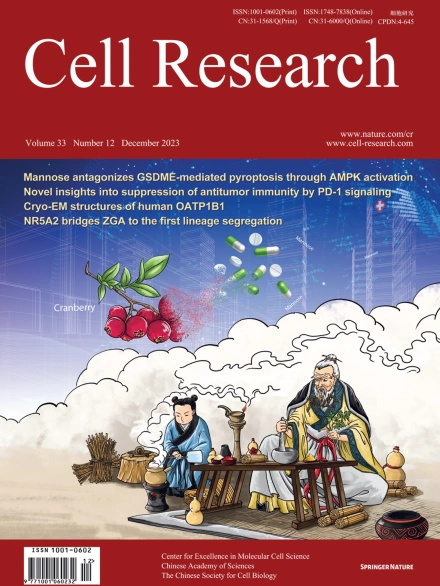
Advanced Search
Submit Manuscript
Advanced Search
Submit Manuscript
Volume 33, No 12, Dec 2023
ISSN: 1001-0602
EISSN: 1748-7838 2018
impact factor 17.848*
(Clarivate Analytics, 2019)
Volume 33 Issue 12, December 2023: 923-939 |
PD-1 signaling negatively regulates the common cytokine receptor γ chain via MARCH5-mediated ubiquitination and degradation to suppress anti-tumor immunity
Rui Liu , Lin-Wen Zeng , Hui-Fang Li , Jun-Ge Shi , Bo Zhong , Hong-Bing Shu* , Shu Li*
Department of Infectious Diseases, Zhongnan Hospital of Wuhan University; Frontier Science Center for Immunology and Metabolism; Medical Research Institute; Research Unit of Innate Immune and Inflammatory Diseases (2019RU063), Chinese Academy of Medical Sciences; Wuhan University, Wuhan, Hubei, ChinCombination therapy with PD-1 blockade and IL-2 substantially improves anti-tumor efficacy comparing to monotherapy. The underlying mechanisms responsible for the synergistic effects of the combination therapy remain enigmatic. Here we show that PD-1 ligation results in BATF-dependent transcriptional induction of the membrane-associated E3 ubiquitin ligase MARCH5, which mediates K27-linked polyubiquitination and lysosomal degradation of the common cytokine receptor γ chain (γc). PD-1 ligation also activates SHP2, which dephosphorylates γcY357, leading to impairment of γc family cytokine-triggered signaling. Conversely, PD-1 blockade restores γc level and activity, thereby sensitizing CD8+ T cells to IL-2. We also identified Pitavastatin Calcium as an inhibitor of MARCH5, which combined with PD-1 blockade and IL-2 significantly improves the efficacy of anti-tumor immunotherapy in mice. Our findings uncover the mechanisms by which PD-1 signaling antagonizes γc family cytokine-triggered immune activation and demonstrate that the underlying mechanisms can be exploited for increased efficacy of combination immunotherapy of cancer.
https://doi.org/10.1038/s41422-023-00890-4